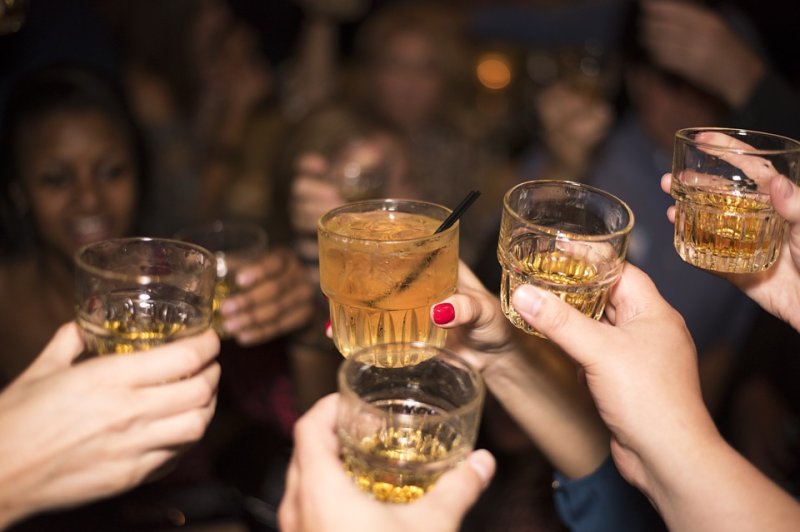More than half of university alcohol policies fail to get the "most effective" rating from experts to reduce problematic drinking on college campuses. Photo by kaicho20/Pixabay
May 17 (UPI) -- Colleges around the country aren't doing all they can to keep students safe from binge drinking, new research shows.
More than half university alcohol policies fail to get the "most effective" rating from experts to reduce problematic drinking on college campuses, according to a study published Monday in Alcoholism: Clinical and Experimental Research.
"Our intent is to offer meaningful feedback for colleges in Maryland and across the U.S. to use to reduce excessive drinking and promote the well-being of their students," said Molly Mitchell, a researcher at Johns Hopkins University and study co-author, in a news release. "For a campus alcohol policy to be effective, students must be aware of it, must be able to understand it and must include policies that evidence suggests will be effective at reducing the availability of alcohol."
To understand the problem of drinking on campus, the researchers set out to assess the alcohol policies on the campuses of 15 Maryland schools. The policies on these campuses are typically included in alcohol campus policies.
For the study, 12 alcohol policy experts and university officials rated the accessibility, clarity, policy effectiveness and sanctions effectiveness of 35 policies and 13 sanctions often included in campus alcohol policies.
Those experts rated only 49 percent of those campus alcohol policies as "most effective."
Colleges and universities are required by law to devise written campus alcohol policies. The researchers say this is the first time those policies have been properly assessed by experts.
The most effective policies cited by the experts and officials included: banning alcohol at student recruitment events, prohibiting alcohol deliveries on campus, prohibiting drinking games and requiring ID checks at campus events with alcohol.
The sanctions most colleges had in place, however, were considered effective. Four out of five sanctions had the strongest effect to deter drinking, which included parental notification and dismissal and campus housing.
The researchers also determined that campuses needed to make alcohol policies more accessible to students. Many schools provide those policies on school websites that may be hard to find and understand.
Roughly 1,800 students at two- and four-year colleges die from alcohol-consumption or drinking-related injuries, the study says.
In April, four fraternity members at Penn State University were convicted after an alcohol-fueled hazing incident left sophomore Timothy Piazza dead.
"Alcohol consumption can impede the health, safety and academic success of students, and campus alcohol policies are the first line of defense against alcohol problems on campus," Mitchell said. "One way to prioritize the health and well-being of students is for colleges across the U.S. to replicate the research we did and regularly assess and improve their policies."















